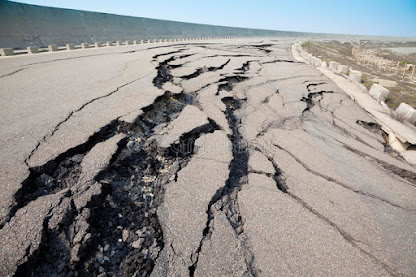An earthquake is a natural disaster when the Earth's tectonic plates suddenly shift, causing the ground to shake and vibrate. Earthquakes can range in intensity from mild to catastrophic and can cause widespread damage and loss of life.
The most common causes of earthquakes are the movement of tectonic plates along fault lines. When two tectonic plates suddenly shift, energy is released in the form of seismic waves, which travel through the Earth's crust and cause the ground to shake. Earthquakes can also be caused by volcanic activity, the collapse of underground mines, and the use of underground nuclear explosions.
The severity of an earthquake is measured on the Richter scale, which ranges from 1 to 10. The scale measures the magnitude of the earthquake, with higher numbers indicating more intense earthquakes.
Preparation and prevention are critical in reducing the damage and loss of life caused by earthquakes. Building codes and standards are in place to ensure that buildings and structures are built to withstand seismic activity. In addition, emergency response plans should be in place to ensure that people know what to do in the event of an earthquake.
SAFETY MEASURES
When an earthquake occurs, it is important to take immediate action to ensure your safety. If you are indoors, find a safe place, such as under a desk or table, and hold on until the shaking stops. If you are outdoors, move to an open area away from buildings and power lines. If you are in a car, pull over to the side of the road and stop until the shaking stops.
In the aftermath of an earthquake, it is important to assess the damage and take steps to ensure your safety. This may include checking for gas leaks, turning off power and water supplies, and leaving damaged buildings.
In conclusion, earthquakes are powerful natural disasters that can cause significant damage and loss of life. By understanding the causes of earthquakes and taking steps to prepare for and prevent them, we can help to reduce the impact of these events and protect ourselves and our communities.
The article provides a concise and informative overview of earthquakes, making it a valuable resource for anyone looking to understand more about these natural disasters. By highlighting the importance of preparation and response, the article also helps to emphasize the role that individuals and communities can play in reducing the impact of earthquakes.










No comments:
Post a Comment